World

Boris Johnson quits adding to pressure on May over Brexit
Boris Johnson has resigned as Foreign Secretary amid a growing political crisis over the UK's Brexit strategy.
He is the second senior cabinet minister to quit within hours following Brexit Secretary David Davis's exit.
His departure came shortly before Theresa May is due to address Parliament about her new Brexit plan, which has angered many Tory MPs.
In a statement, No 10 thanked Mr Johnson for his work and said a replacement would be announced shortly.
The BBC's political editor Laura Kuenssberg said Mr Johnson's exit had turned an "embarrassing and difficult situation for the PM into
potentially a full-blown crisis".
She said he was not any ordinary cabinet minister but was the "face" of the Leave campaign during the 2016 referendum and his departure would fuel speculation about a leadership challenge.
Labour said his exit - on top of Mr Davis's departure - left Theresa May with "zero authority".
Source : BBC
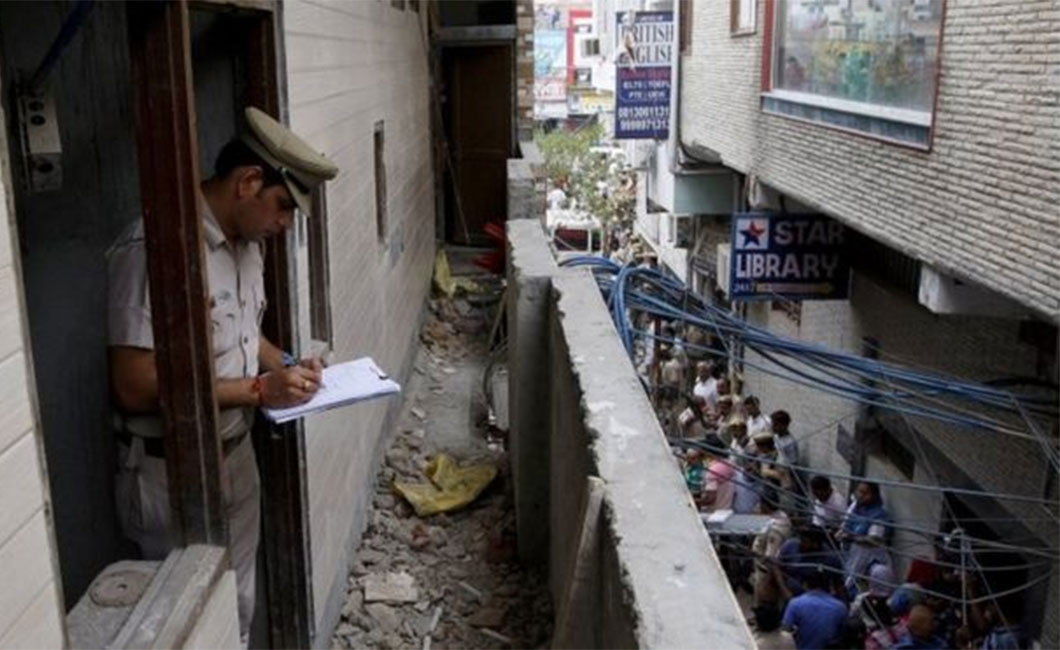
Delhi mass hangings: CCTV footage backs suicide theory
India police investigating the deaths of 11 family members found dead in their home in the capital Delhi say they have recovered CCTV footage which supports a theory of mass suicide.
The footage shows family members carrying stools and wires used in the hangings into the house, police said.
A post-mortem report confirmed that all 11 died due to hanging.
Police told the BBC that despite the footage, they had not ruled out murder and are still investigating.
Many questions remain unanswered in the case, which has gripped the country.
For instance, all the dead were blindfolded and gagged, with their hands tied behind their backs. It is not clear how they would have been able to do this before killing themselves.
"We have to sift through CCTV footage for the last three months to get a better idea of what could have transpired," a police officer told BBC Hindi's Salman Ravi.
After the bodies were found, investigators said the case could be one of "mass suicide linked to spiritual and mystical practices" based on notes recovered from inside the house.
The 11 dead are members of the Bhatia family. They include 75-year-old Narayan Devi, her daughter, two sons, their wives and five grandchildren aged between 33 and 15.
Police have also found 11 diaries, which they believe belonged to Lalit Bhatia, who was Narayan Devi's youngest son. They suspect that Mr Bhatia believed he was "possessed by the spirit" of his father, who died in 2008.
"Notes found in one of the diaries hint that a strong belief that supernatural forces would intervene and save them could have motivated the family to hang themselves," an investigating officer said.
The family lived in a three-storey house in Burari, a largely middle-class area of North Delhi.
Neighbours say the family were active members of the community and describe them as "religious, happy and financially comfortable".
The oldest grandchild, Priyanka, who was 33, was among the dead. She got engaged two weeks ago and the family had thrown a large party to celebrate, inviting many people in the area.
Source : BBC
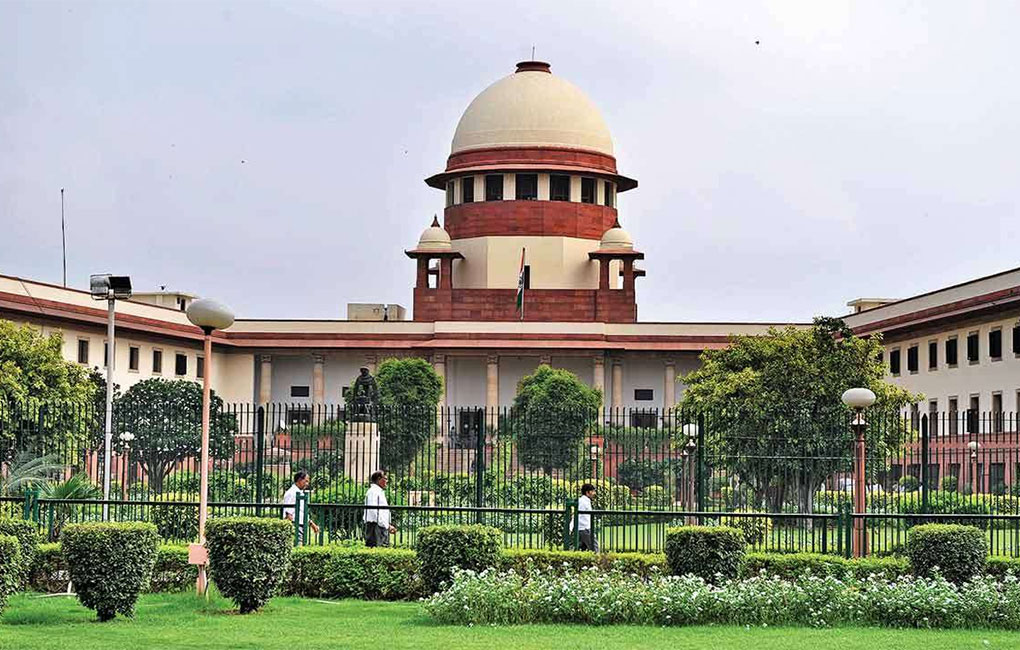
India to live steam Supreme Court proceedings
An Indian Supreme Court Bench, led by Chief Justice of India Dipak Misra said they favoured live-streaming of court proceedings.
The Bench asked Attorney General K.K. Venugopal, who also agreed with the prospects of airing court proceedings for global viewing, to make his submissions on the issue on July 23, the next date of hearing.
In an earlier hearing, the Bench, also comprising Justices A.M. Khanwilkar and D.Y. Chandrachud, asked the Attorney General to assist the court on a plea to live-stream Constitution Bench proceedings in nationally important cases such as Aadhaar and decriminalisation of gay sex in the Supreme Court.
The petition was filed by senior advocate Indira Jaising in her personal capacity. Jaising had said courts around the world allowed their proceedings to be recorded, though they differed in their ways.
She had said that some judges in constitutional court in India have historically been reluctant about the idea of recording court proceedings because it would “capture every sentence” in the banter between judges and lawyers which are merely a way to elicit responses and not a sign of how the judge would finally decide the case.
Jaising however said there were different methods to resolve such reluctance and illustrated means adopted by courts globally.
“Some courts allow publication after a gap of 30 minutes, some ban recording of proceedings only in trial courts as that would compromise witnesses, some give edited versions of the proceedings, some record the proceedings but do not air it in public, some give out transcripts of proceedings,” Jaising had explained.
She had said such apprehensions should not create a roadblock in the public’s right to information.
The Supreme Court, in a bid to usher in transparency, had earlier allowed the installation of CCTV video recording with audio in trial courts and tribunals.
Jaising said citizens have the right to information and matters of constitutional and national importance can be live-streamed. If live streaming of top court’s proceedings is not possible, then alternately the video recording should be allowed, she had argued.
“This Writ Petition is filed as Pro Bono for enforcement of public interest, to advance the rule of law and bring accessibility and transparency in the administration of justice,” her plea said.
“The petitioner submits that the live streaming and videography of the proceedings of the Supreme Court in matters of great public importance will be in keeping with the principle of open access to justice and will ensure justice is not only done but it is seen to be done,” Jaising’s petition said.
Source : The Hindu
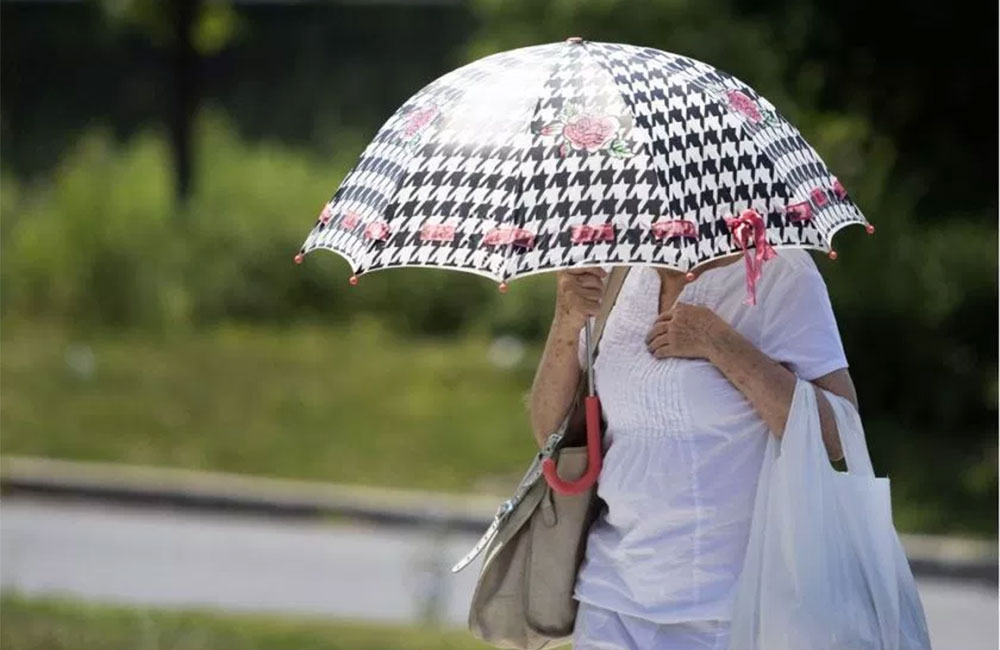
33 dead in Quebec heat wave
Quebec health authorities say 33 people in the province have died from heat-related complications over the last few days.
The number includes 18 in Montreal, which has been hit hard by muggy temperatures for several days.
Other areas affected are the Eastern Townships (seven), central Quebec (five), the Monteregie region south of Montreal (two) and Laval (one)
Public Health Minister Lucie Charlebois told a news conference Thursday none of the deaths occurred in a hospital or long-term care facility and that the people who died were already suffering from health problems.
No deaths have been reported in other provinces.
The ambulance service that serves a large swath of the Montreal area has called on people to refrain from calling unless it is a real emergency.
Urgences-sante says it has been inundated by the volume of calls -- 1,200 calls per day in Montreal and nearby Laval over the past four days, which is 30 per cent more than usual on busy days.
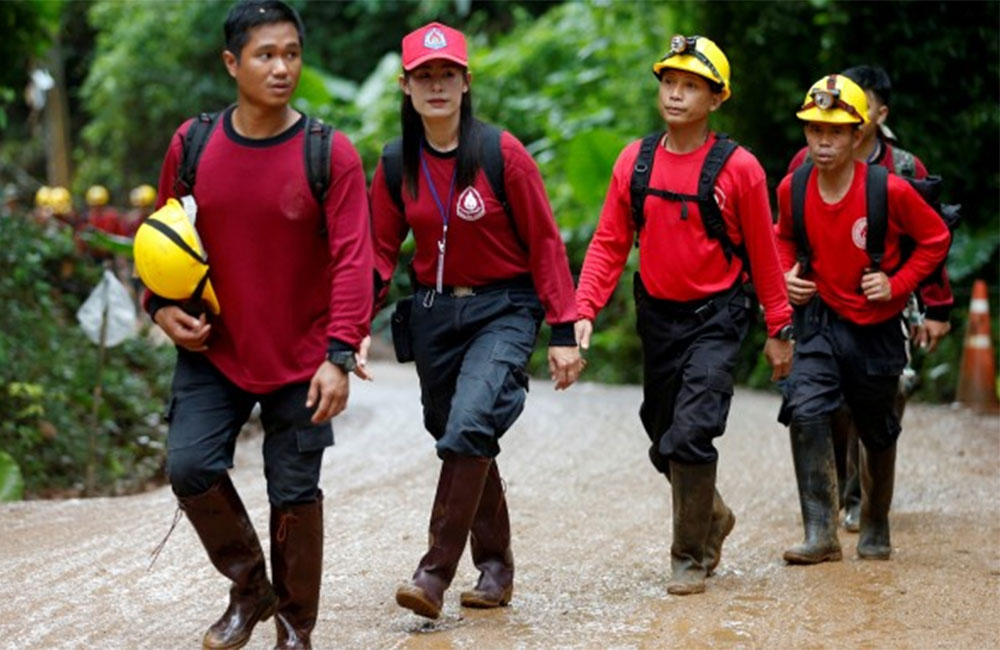
Cave rescue in Thailand : Operation resumes to bring out boys
Cave divers in Thailand have resumed the high-risk operation to extract the remaining eight boys and their football coach from a vast flooded cave system, reports say.
Four boys were brought safely out of the cave on Sunday.
But the mission was paused overnight for air tanks to be replaced.
The boys became trapped in the cave on 23 June after heavy rains caused flooding, but were found alive last week by divers. Rescuers decided to go ahead with the hazardous operation to free them because of fears that waters would rise again. The operation is going ahead amid concerns that heavy rain on Sunday and overnight may have raised water levels making the rescue more difficult.
Source : BBC

Lions eat 'rhino poachers' on South African game reserve
At least two suspected rhino poachers have been mauled to death and eaten by lions on a South African game reserve, officials say. Rangers discovered the remains of two, possibly three, people in a lion enclosure in the Sibuya reserve, near the south-east town of Kenton-on-Sea.
A high-powered rifle and an axe were also found. There has been an rise in poaching in Africa in recent years, to feed growing demand for rhino horn in parts of Asia.
In China, Vietnam and elsewhere, rhino horn is believed to have aphrodisiac qualities. Sibuya reserve owner Nick Fox said in a statement on the reserve's Facebook page that the suspected the remains were first spotted at 16:30 local time on Tuesday (14:30 GMT).
An anti-poaching team arrived on the scene, where a hunting rifle with silencer, a long axe and wire-cutters - equipment generally used by rhino poachers - were also found. Several lions had to be tranquilised before the remains could be recovered, Mr Fox added.
Poachers entered the reserve late on Sunday night or early on Monday morning. "They strayed into a pride of lions - it's a big pride so they didn't have too much time," Mr Fox told AFP news agency.
"We're not sure how many there were - there's not much left of them."
Police have been patrolling the area in case any of the suspected poachers survived. Nine rhinos were killed by poachers in Eastern Cape province, where the reserve is located, this year alone.
More than 7,000 have been killed in South Africa in the past decade.
Source : BBC
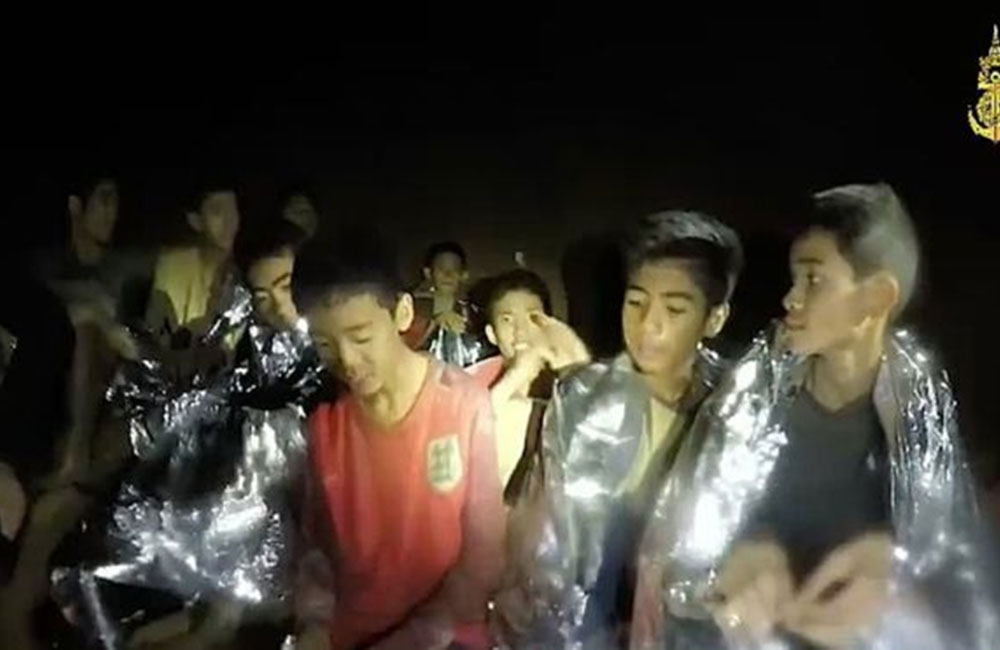
Thailand cave rescue: Mission to save boys under way
Rescuers in Thailand have begun a hazardous operation to lead 12 boys and one adult out of a cave where they have been trapped for two weeks.
The group are stranded on a ledge 4km inside the Tham Luang cave but amid fears of rising waters, officials have decided they cannot wait any longer.
Expert divers who have been keeping the group supplied since they were found last week will guide them out.
Officials have called it D-Day, saying the boys are fit and ready to move.
Source : BBC
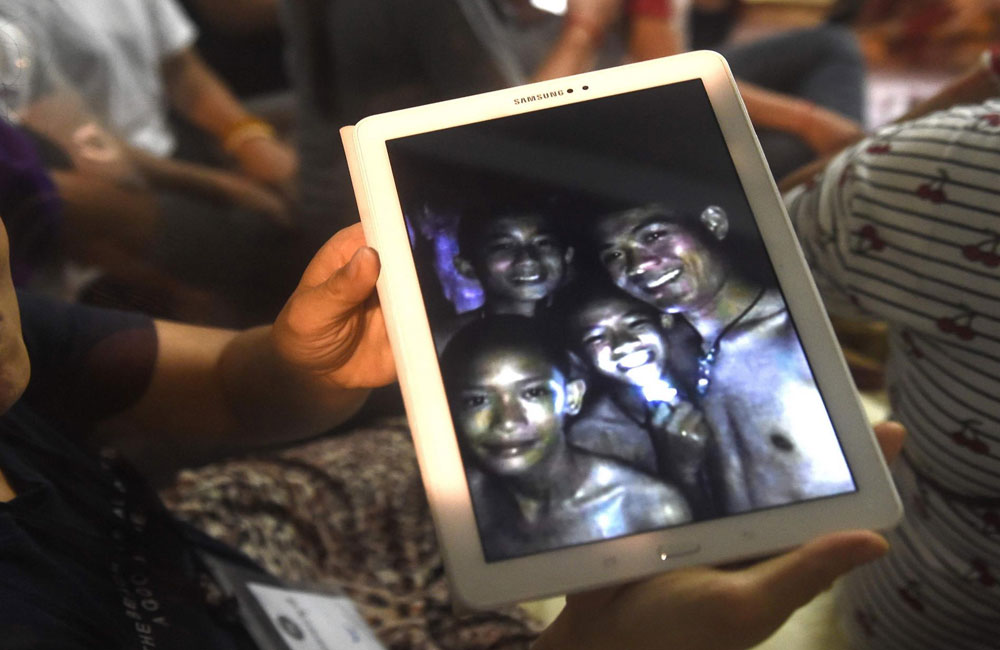
Thailand cave rescue: Search teams unsure how to free trapped boys
The initial relief that greeted the dramatic discovery of the trapped Thai soccer team has given way to questions over why the boys are still inside the flooded cave network and not on their way to the surface and their waiting families.
Part of the concern about attempting to bring the boys out of the cramped, pitch-black chamber where they have spent the better part of nine days is that they are around two kilometres (1.2 miles) inside the cave, and nearly a kilometre below the surface, according to rescuers.
The boys, who were found alive by British divers in the early hours of Monday morning, are now being tended to by seven Thai Navy Seals, including a doctor and nurse, Thai Navy Seal Chief Rear Adm. Aphakorn Yoo-kongkaew told reporters at a news conference late Tuesday.
The children were being given access to telephone lines to be able to reach their families, but the focus, said Yoo-kongkaew, was on building their strength so they can attempt the journey out. However, options for the rescuers working in and around the Tham Luang Nang Non-cave system in northern Thailand are limited.
The area in which the group remains stranded is accessible only via a narrow, flooded channel, and attempts to pump water from the cave or find a natural opening in the roof of the chamber, have so far been unsuccessful.
Capt. Akanand Surawan, a commander with the Royal Thai Navy, said authorities would now supply the group with four months' worth of food and begin teaching the boys how to scuba dive.
Surawan's reference to four months has been interpreted as a potential sign that authorities are considering waiting until after the rainy season ends in October to begin the rescue operation.
But with heavy rain expected to continue in the coming days, rising water levels could force rescuers to act sooner rather than later.
Diving is considered among the least preferable escape methods, with experts cautioning that any attempt to traverse the narrow passageways will be fraught with difficulties and potential complications, especially if the children can't swim.The boys, who are between 11 and 16 and are members of the Wild Boars soccer team, had been exploring the cave network with their soccer coach on June 23, when heavy seasonal rains flooded the cave's entrance, forcing the group further and further into the labyrinth of tunnels in search of high ground.
Their sudden disappearance sparked a desperate nine-day race against time as hundreds of volunteers and specialist international search teams battled against the heavy rains to locate the missing group.
Source : CNN
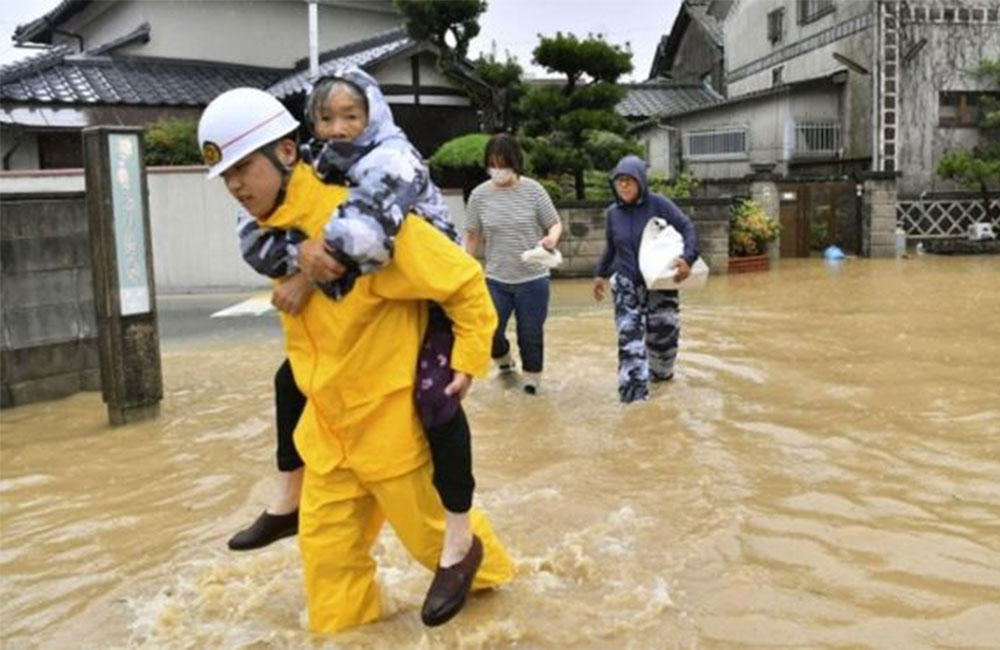
Japan floods: Dozens killed in deluges and landslides
Flooding and landslides have killed at least 50 people and left dozens missing in western areas of Japan.
Most of the deaths have occurred in Hiroshima prefecture, which has been hit by torrential rain since Thursday. Hundreds of homes have been damaged.
About 1.5 million people have been ordered to leave their homes and three million more advised to do so.
Thousands of police, firefighters and soldiers are taking part in search-and-rescue operations.
Some of the victims have been buried alive by landslides, Japan's Kyodo news agency reports.
In the town of Motoyama, about 600km (370 miles) west of the capital Tokyo, 583mm (23in) of rain fell between Friday morning and Saturday morning, Japan's meteorological agency said.
More rain is expected over the next few days.
Source : BBC
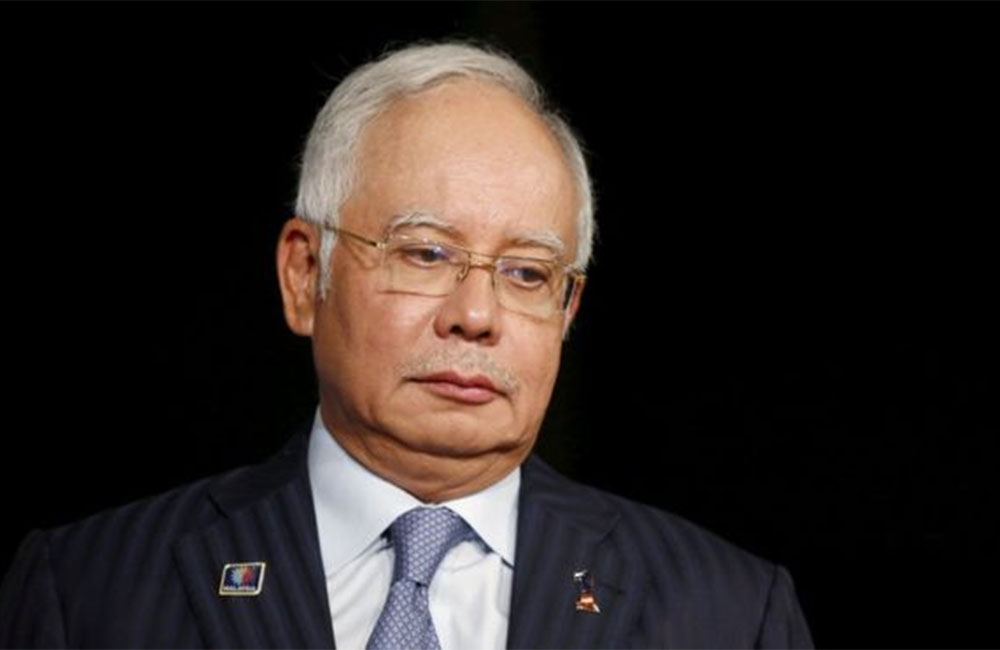
Ex-Malaysian PM Najib Razak arrested for corruption
Former Malaysian Prime Minister Najib Razak was arrested on Tuesday, three sources familiar with the matter told Reuters, amid an investigation into how billions of dollars went missing from a state fund he founded almost a decade ago.
Authorities picked up Mr. Najib from his home after serving him with a remand order, two sources close to the family said. One of the sources said Mr. Najib was expected to be charged in court on Wednesday.
Malaysia’s anti-graft agency also said Mr. Najib had been arrested, according to state news agency Bernama.
A spokesman for the former premier did not immediately have a comment. Mr. Najib has consistently denied wrongdoing in dealings with state fund 1Malaysia Development Berhad (1MDB).
Since his shock election loss to Mahathir Mohamad in May, Mr. Najib has been barred from leaving the country, quizzed by the anti-graft agency and had his personal and family houses searched as part of the 1MDB probe.
Mr. Mahathir said in an interview with Reuters last month that embezzlement and bribery with government money were among the charges that Malaysia was looking to bring against Mr. Najib, adding they had “an almost perfect case” against him.
Founded by Mr. Najib in 2009, 1MDB is being investigated in at least six countries for alleged money laundering and graft.
Civil lawsuits filed by the U.S. Department of Justice allege that nearly $4.5 billion was misappropriated from 1MDB.
Source : Reuters
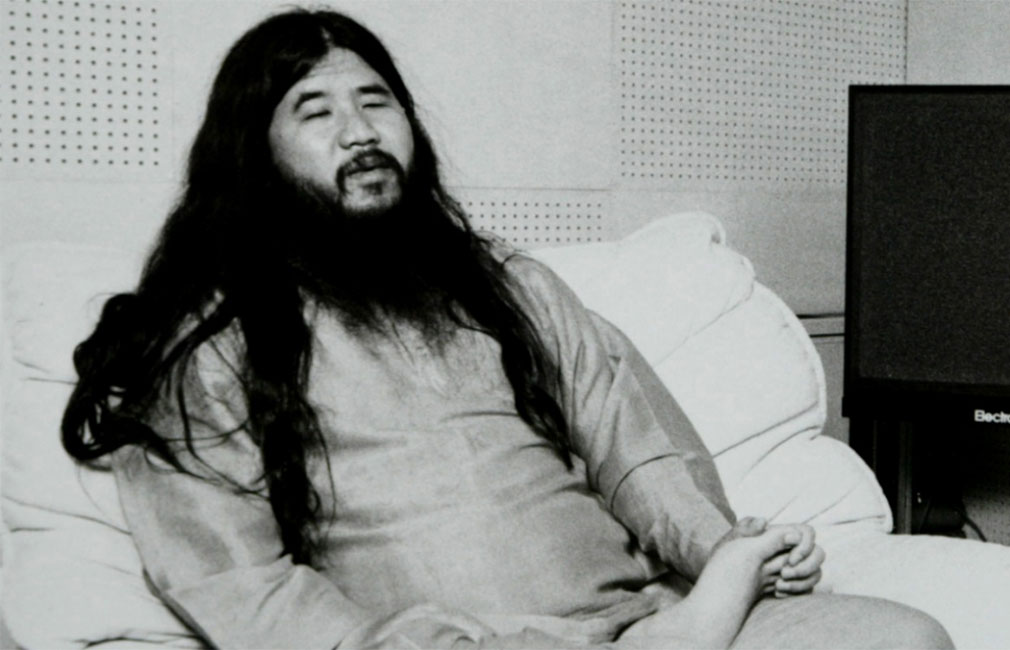
Japan hangs seven for 1995 sarin attack on Tokyo subway
Japan on Friday (July 6) executed the former leader of a doomsday cult and six other members of the group that carried out a sarin gas attack on the Tokyo subway in 1995, killing 13 people and shattering the country’s myth of public safety.
The Aum Shinrikyo, or Aum Supreme Truth cult, which mixed Buddhist and Hindu meditation with apocalyptic teachings, staged a series of crimes including simultaneous sarin gas attacks on subway trains during rush hour in March 1995. As well as killing the 13, the attack injured at least 5,800 people, some permanently.
Some Tokyo residents said they felt there would now be closure for the victims and the bereaved, but that it was regrettable an apology was never issued. One relative of the sarin attack said she wished the execution had happened sooner so those who did not survive the 25 years since the incident could hear the news.
At its peak, Aum had at least 10,000 members in Japan and overseas, including graduates of some of Japan’s top universities. A resident living near a building run by the religious group Aleph, which is made up of former Aum members, said he felt the group had been more active recently and was worried about their next move.
Executions are rare in Japan but surveys show a vast majority of people supports the death sentence.
Source : Reuters

Theresa May vows to eradicate ‘abhorrent’ gay conversion therapy as part of LGBT+ equality plan
Theresa May has vowed to eradicate the “abhorrent” practice of gay conversion therapy as she today publishes the world’s largest LGBT+ survey and a government plan aimed at addressing discrimination and health inequality.
Writing exclusively for The Independent, Penny Mordaunt, the women and equalities minister, said that conversion therapy – sometimes referred to as “gay cure” – is “abuse of the worst kind and must be stamped out”.
The decision comes after ministers found the controversial practice, which aims to alter a person’s sexual orientation, to be more prevalent than previously thought after analysing the survey of 108,000 LGBT+ individuals across the UK.
It forms one of 75 commitments in the action plan – alongside a £4.5m fund – to tackle issues raised by the LGBT+ community in the survey last summer that aimed to gain an in-depth understanding of experiences of life in Britain.
Results in the survey suggested that 5 per cent – 5,400 people – had been offered the widely discredited therapy by a range of faith organisations, healthcare providers, and family members while two per cent (2,160) had undergone it.
Ms. Mordaunt said the practice – described as “unethical and potentially harmful” by NHS England in 2014 – can “range from pseudo-psychological treatments to in the most extreme cases, surgical interventions and ‘corrective rape’.”
Her department will now consider “all legislative and non-legislative options” to prohibit promoting, offering or conducting the therapy in the UK.
Other results of the survey included:
Two in three people (68 per cent) said they avoided holding hands with a same-sex partner in public for fear of a negative reaction2 per cent have undergone conversion therapy while 5 per cent have been offered itNearly a quarter (23 per cent) said people at work reacted negatively to them being LGBT+70 per cent said they avoided being open about their sexual orientation for fear of a negative reactionOf trans respondents, 59 per cent said they avoided expressing their gender identity for fear of negative reactionLaunching the action plan on Tuesday, the prime minister said it sets out “concrete steps” to “deliver real and lasting change across society”.
Ms May continued: “I was struck by just how many respondents said they cannot be open about their sexual orientation or avoid holding hands with their partner in public for fear of a negative reaction. No one should ever have to hide who they are or who they love.
“We can be proud that the UK is a world leader in advancing LGBT+ rights, but the overwhelming response to our survey has shone a light on the many areas where we can improve the lives of LGBT+ people.”
(The Independent)
Page 31 of 50